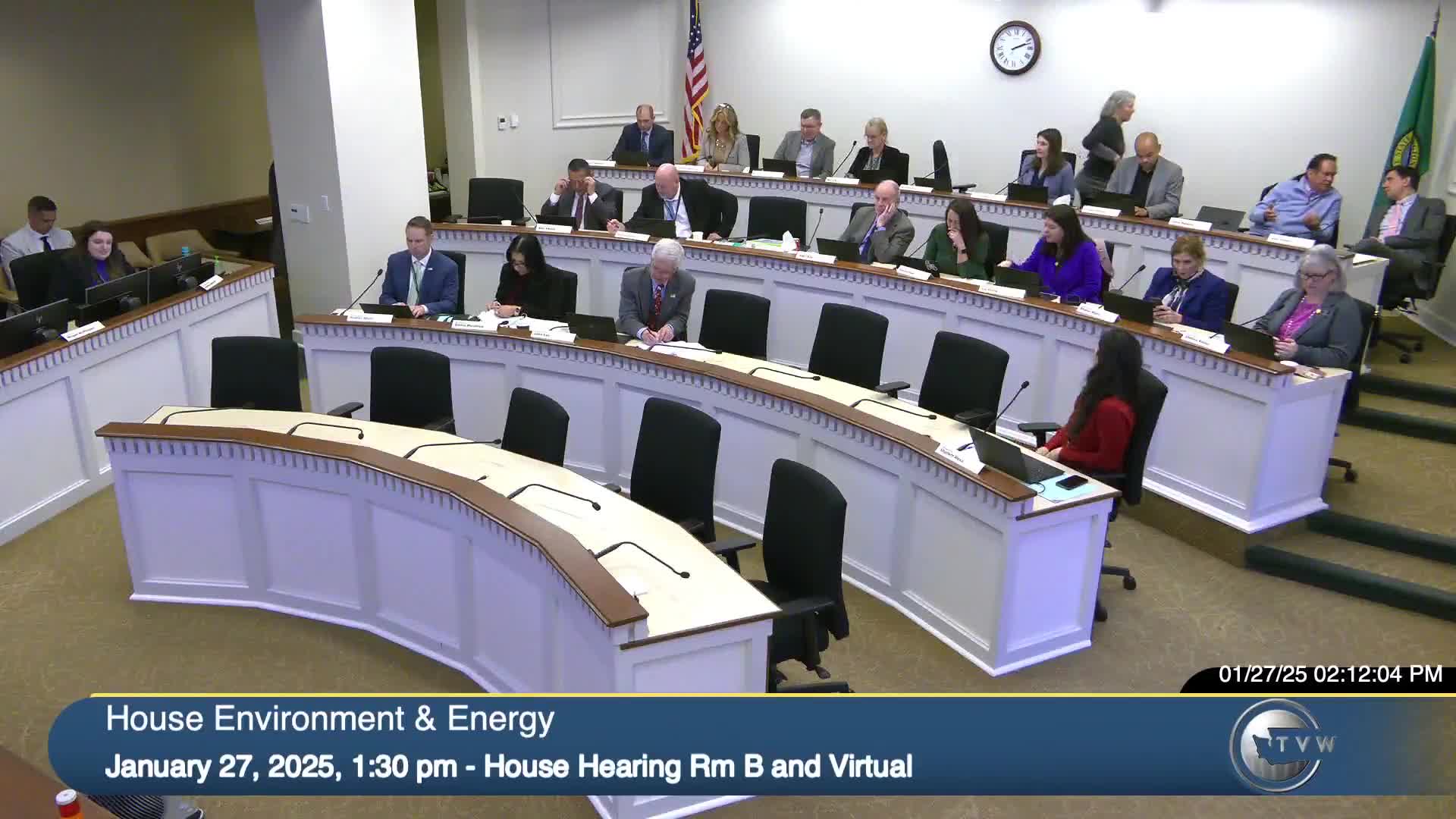Commerce asks committee to create a Clean Energy Development Office to smooth siting and planning
Get AI-powered insights, summaries, and transcripts
Subscribe
Summary
House Bill 1328 would create a Clean Energy Development Office in the Department of Commerce to provide planning, mapping, dispute resolution and a work group on siting battery energy storage; proponents say it would improve coordination among developers, tribes and local governments while others warned about overlap with existing agencies.
The committee heard House Bill 1328, an agency-request bill that would create a Clean Energy Development Office (CEDO) within the Department of Commerce to support planning, siting and development of clean-energy projects.
Commerce staff described the office’s proposed authorities: compiling information and guidance on siting and permitting, supporting workforce development, helping tribes and local governments integrate clean-energy projects into planning and zoning, convening a battery energy storage system work group and assessing a ‘‘build-ready’’ program to identify low-conflict sites. ‘‘The bill…is designed to address these kinds of issues. And currently we don't really have it,’’ said Representative Beth D'Aleio in introducing the bill for Commerce.
Commerce’s legislative director Dave Pringle and senior energy policy lead Dan Seaman told the committee the office would focus on pre-permit coordination — improving transparency and early engagement so communities, tribes and developers exchange information before formal permitting begins. ‘‘We’re really looking at addressing issues at a system level, prior to that regulatory permitting stage to see where we can get things in the right place,’’ Pringle said.
Environmental and conservation groups told the committee they support HB 1328 if it prioritizes biodiversity and tribal values. Brynn Brady of Audubon Washington said the bill could ‘‘help ensure that clean energy projects are built in the right places, protecting birds and habitat and tribal values.’’ Ben Blank of the Department of Fish and Wildlife urged mapping and visualization tools to account for sensitive habitat.
Industry groups urged caution about creating a new state office and asked that Commerce coordinate with existing entities. Peter Godlowski of the Association of Washington Business said some provisions could be folded into existing processes rather than standing up a new office. Public utility and local-government witnesses emphasized the office should coordinate with the organizations that already perform integrated resource planning and transmission studies.
The bill would give Commerce rulemaking authority to implement the office and requires reports — including recommendations from the battery energy storage work group and a feasibility assessment of a build-ready program by July 2026. No committee vote was recorded during the hearing.
Why it matters: Sponsors and supporters contend an anchor state office could reduce conflict, increase transparency and accelerate responsibly sited clean-energy projects; critics warned of duplicative bureaucracy and urged clear delineation of responsibilities with existing agencies.
